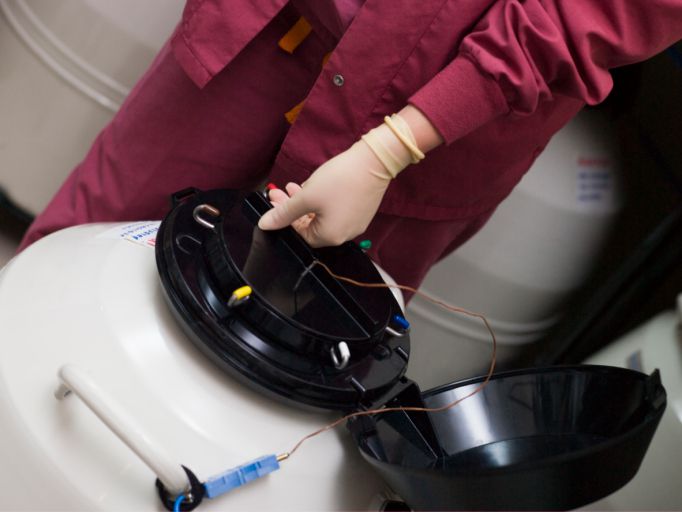In a stud presented at the Society for Maternal-Fetal Medicine’s annual meeting in San Francisco, California, researchers will present findings showing perinatal outcomes of frozen/thawed embryo replacement (FER) have better outcomes compared to fresh in vitro fertilization (IVF), but worse outcomes compared to the non-IVF general population.
The study collected data from all IVF treatments in Denmark, Norway and Sweden from 1984 – 2007, then cross-linked with the Nordic Medical Birth Registries. Babies born after FER (6,653) were compared to those born after fresh IVF (42,287) and the general population (288,868). Researchers looked for eight different outcomes: low birth weight, very low birth weight, preterm birth, very preterm birth, small for gestational age, macrosomia (excessive birth weight), large for gestational age, and stillbirth.
“FER is used increasingly in IVF programs to avoid the risks associated with multiple births,” said Ulla-Britt Wennerholm, of Sahlgrenska University Hospital in Göteberg, Sweden. “We sought to analyze the outcomes compared to spontaneous conceptions and fresh IVF.”
Dr. Wennerholm and her associates found children born after FER had higher rates of PTB, very PTB, LBW, very LBW, LGA, and macrosomia compared to spontaneous conceptions. However, when compared to fresh IVF births, children born after FER fared better, having lower rates of PTB, LBW, and SGA. But they also found children born after FER to have higher rates of LGA and macrosomia than those born from fresh IVF.
Researchers concluded outcomes for FER to be better compared to fresh IVF, but worse compared to the general population. However, they believe the higher rates of LGA and macrosomia compared to fresh IVF will require further attention.




 (3 votes, average: 3.67 out of 5)
(3 votes, average: 3.67 out of 5) 






